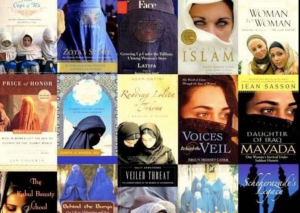And another…
Some beautiful and vivid anecdotes from the life of the 9th century Sufi sheikh, Hazrat Sahl ibn Abd Allah al-Tustari.
He narrates from `Umar ibn Wasil al-Basri that Sahl said: "My uncle once told me: `Remember Allah Who created you.’ I said: `How should I remember him?’ He replied: `Say in your heart, whenever you are alone at night, three times, without moving your tongue: Allah is with me; Allah is looking at me; Allah is watching me.’"
This became his lifelong devotion. He memorized the Qur’an by the age of seven. He used to practice perpetual fasting and prayed all night. He reached a point where he broke his fast only once every twenty-five nights on one dirham’s worth of barley bread for twenty years.
Hence his saying: "Hunger is Allah’s secret on His earth. He does not confide it to one who divulges it." To a shaykh who told him that whenever he performed ablution the water that dripped from him changed into sticks of gold he said: "Children are given rattles."
Whew. That’s some serious fasting. And what a retort.
I’ve always been intrigued by they way many of the teachings passed down from the great sages of Sufism accept the existence of miracles at face value while simultaneously belittling them and discouraging the faithful from putting any stock in them.
Here a thing that would seem the most self-evident sign of God’s favor is ranked beneath the most "mundane" and unnoticeable of spiritual disciplines, fasting. Of course, such an extraordinary individual’s spiritual exercises and their outcome bear little more than the a superficial similarity than those of the awam (masses), but the egalitarian message remains intriguing.
In fact, a later sheikh, Hazrat Nizam ad-Din Awliya, warns in his incomparable Morals for the Heart, "Disclosing divine secrets and performing miracles […] are actually a hindrance in the Path." (pg. 117), and urges adepts who’ve manifested miracles to exit this world. The translator of this book, Bruce Lawrence, notes that though the book abounds in miraculous accounts and though it constantly relates his personal experiences, none of them is ascribed to Sh. Nizam ad-Din himself. It’s a fascinating tension.
Since I’m mentioning the Morals for the Heart–which is an extraordinarily deep yet very accessible literary introduction to Sufism and Islamic ethics in general that I can’t recommend highly enough–I must pass on this inspiring passage regarding women and faith that turns the conventional wisdom on its head:
The master then declared that dervishes who ask saintly women and saintly men to intercede on their behalf invoke saintly women first because they are so rare. "When a wild lion comes into an inhabited area from the forest," he explained, "no one asks: ‘Is it male or female?’ Similarly, the sons of Adam, whether they be men or women, must devote themselves to obedience and piety." (pg. 103)











